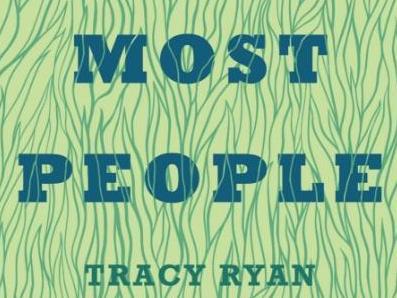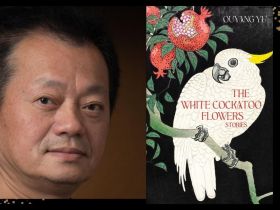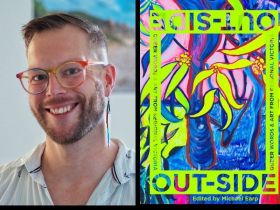Tracy Ryan’s We Are Not Most People published by Transit Lounge.
This novel is an engrossing, sensitive and deeply moving love story about an older man and a younger woman, neither of whom are like most people. But then again, who is? Perhaps those who feel like most people are born and grow up in an environment in which they feel secure and comfortable, immersed in an order of things which they feel no need to question.
The protagonists of We Are Not Most People, however, are not of that ilk. The older man of the love story is Kurt Stocker, born in that highly respected country, Switzerland. Tracy Ryan reminds us, though, that Switzerland also ‘exported armaments to the Nazis, accepted their stolen gold, bought their coal, sold them electricity, allowed their rail transport, and restricted the entry of Jewish refugees’.
But the young Kurt knows nothing of this. As a boy he desperately longs for the approbation of his parents and teachers. To that end, he decides to become a priest despite receiving no ‘calling’. With the blessing of his parents, then, he joins a seminary at a young age.
Ryan’s descriptions of seminarian life are revealing and, at times, deeply disturbing. But there Kurt remains until he is expelled at the age of 30 for telling penitents that ‘priests can’t really give them absolution, that only God can forgive them’. He can’t say that kind of thing, he is told – that is Protestantism – or worse.
The younger woman of the love story is Terry Riley. As a girl, she never feels like the other girls at her Perth school, never quite fitting in with her contemporaries. And as a young woman, she finds it especially difficult to get a job at at a time when more than 10% of the workforce is unemployed; her language skills and musical talents are assets apparently unvalued by potential employers. However, she is fascinated by the Carmelites, and eventually becomes a postulant, much against the wishes of all the members of her family except her grandfather. ‘If she doesn’t like it she’ll come out. If she does, then she’ll be happy, which we all want,’ he argues before throwing out a question: ‘Isn’t it?’
Ryan proffers some fascinating glimpses of the highly institutionalised life of a Carmelite nun, but it is not long before Terry decides that religious life is not for her and leaves.
Terry and Kurt first meet when he is the French teacher at her Perth school. They meet again many years later and that is when they fall in love in spite of the difference in their ages. Ryan describes their life together with extraordinary compassion and insight. In more ways than one, both Terry and Kurt are natural outsiders and in addition carry the scars of their earlier years.
Ryan effectively uses Kurt’s experiences as an immigrant to Australia to comment on the financial and practical difficulties facing new migrants. She explores complex relationships through Kurt’s attachment to his long-since-divorced first wife, and sensitively elucidates the sexual problems that bedevil Kurt’s relationships, problems that at least partly stem from his monastic background and first marriage. She also skilfully evokes the nuances of Terry’s enjoyment of her relationship with Kurt in spite of the difficulties they encounter, as Terry and Kurt are by no means a conventional couple, if indeed there is such a thing. Terry muses, ‘when you loved someone, you entered into their story, whether you irrupted or slipped into it’.
Indeed, Ryan’s writing is never less than compelling. As you progress through the novel and get to know Terry and Kurt better, you empathise with both of them even when they have their differences. And while you may become more cynical about certain aspects of organised religion, you gain a better understanding of human nature, and perhaps – just perhaps – become a bit better informed about the lives of others and a little more tolerant of those considered ‘different’. This is what great fiction can accomplish, and it is what Ryan has achieved with this indelible novel.
Rating: 4 ½ stars ★★★★☆
We Are Not Most People
By Tracy Ryan
Format: ISBN: 978-1-925760-04-0
Trade PB 256pp
Rights: WorldRelease
Publication Date: 01 /06 /2018
Transit Lounge Publishing





